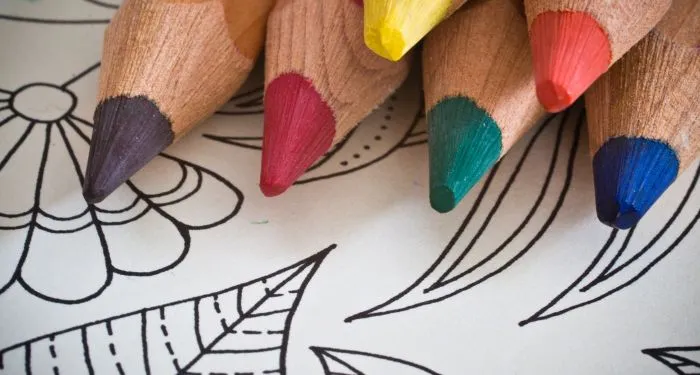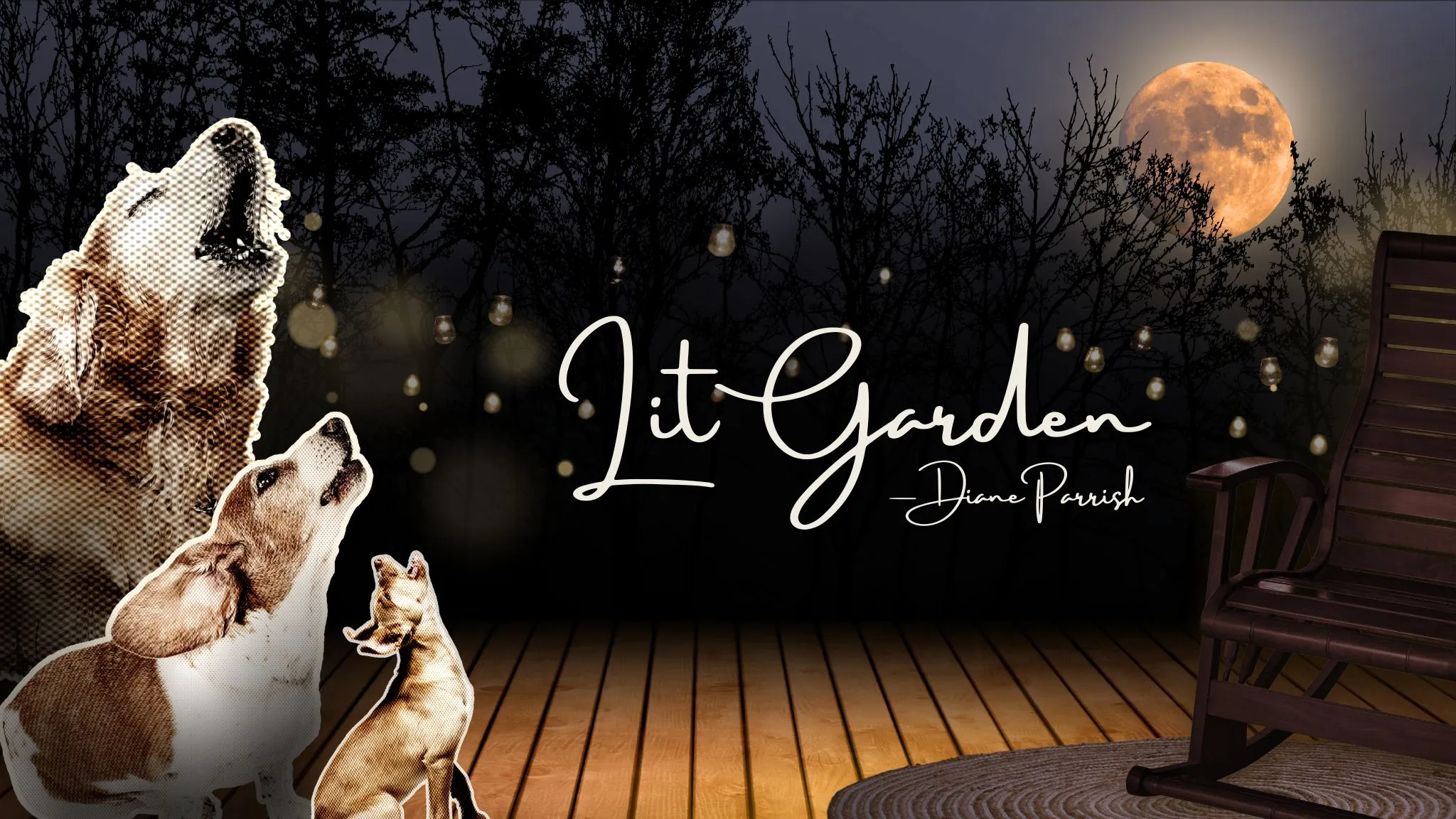Kelly is a former librarian and a long-time blogger at STACKED. She's the editor/author of (DON'T) CALL ME CRAZY: 33 VOICES START THE CONVERSATION ABOUT MENTAL HEALTH and the editor/author of HERE WE ARE: FEMINISM FOR THE REAL WORLD. Her next book, BODY TALK, will publish in Fall 2020. Follow her on Instagram @heykellyjensen.
“What can I do to learn about book censorship and help put a stop to it?” This question and variations thereof continue to be the most common ones I come across. The answer is not to buy the books. That is an act of consumerism within capitalism, and while it has value, meaning, and purpose, it is not a step in ending book bans. It is a myth that book bans increase book sales and “help” an author whose work has been targeted. It is also a myth that book bans encourage young people to get their hands on the banned title.
The reality is what’s at stake are our public institutions of democracy: public libraries and public schools. Also at stake are the lives of whole groups of people whose stories are being silenced, erased, and burned nationwide by a small, vocal, wealthy, and well-connected contingent of far-right politicians and Christian nationalists (sometimes those groups are one and the same).
Rather than offer a “how to fight book bans in 2025” guide—it’s going to be the same as the “how to fight book bans in 2024” list—I’ve compiled a massive list of ideas for things you can do to not only effectively fight against book censorship but that also will increase your own knowledge, vocabulary, and fluency in the world of censorship as it is right now. Intended to be 52 tasks, one for each week; thanks to input and insight from several others working in the anti-book censorship space, there are a few more tasks than there are weeks in the year. This gives you the opportunity to choose one task per week with a few bonus tasks and/or gives you the chance to do more than one task a week when you have the capacity to do so.
Not everything on this list will be applicable to every person, though most will. These are all adaptable to your personal situation. While some of the tasks might feel duplicative, that’s by design because everyone has to learn what type of activism and advocacy works for them. Try things out, learn what is sustainable in your life, and lean into this with curiosity.
We don’t need another resource guide to book censorship. There are 500 million of them on the internet, and while they are useful in helping create ideas or share information, they are not actions in and of themselves. What we need are people showing up, doing the work, putting their butts in chairs at meetings (or at least getting their emails into inboxes), speaking out, and doing the work. Share those resource guides, especially the ones you find to be interesting or helpful, but know that in and of itself is not going to end book censorship. Four-plus years into this meteoric rise of book censorship, we cannot get complacent. That is how and why our institutions of civic engagement and democracy have been so readily attacked.
Literary Activism Newsletter
News you can use plus tips and tools for the fight against censorship and other bookish activism!
Thank you for signing up! Keep an eye on your inbox.
Consider getting a journal or tracking what works and doesn’t work, how it felt to engage in the activity, what your takeaways were, and so forth. One of the best ways we learn about our capacity to be agents of change is through reflection. To help a bit with this, as the list below can be overwhelming to take in as a whole, I’ve put every task below into a Google Spreadsheet for you to use in tracking, documenting, and including any notes that might help you along the way. The document is locked, so to edit it, you’ll need to go to File, then Make a Copy onto your own Google Drive.
Links here are suggestions and starting points. You might have other resources you find and learn from. Go for it.
- Get a library card for your local library or go with a friend to get them signed up. Don’t have a local library? You can pay for out-of-state cards in several places, and you may be eligible to apply for one of these free digital cards. Have a card and it has expired? No time like the present to renew it. Library card sign ups indicate an interest and investment in a public good.
- Find out who represents you in your state legislature and in the US House of Reps and Congress. Put their name, contact information, and the committees on which they chair or sit somewhere handy. This might be your phone or a digital sticky note on your laptop.
- Vote in your local election. There well over 100,000 local level seats open for election in 2025. If you don’t have an election this year, find out what offices will be opening up in your community for your public library, public school, and village/city council in the next election. If you live in a community where these offices are appointed, learn how to volunteer or what the process looks like to be appointed.
- If you are having local elections this year, develop a spreadsheet or word-processing file documenting who is running for seats on your local/county school and library boards. Make it a sharable guide that includes links to each candidate and some kind of system indicating whether or not they can be considered pro-library or pro-public education candidates (red for no, yellow for unsure, and green for yes is a nice easy system). A great example of this kind of work is Frank Strong’s “Book-Loving Texan’s Guide to School Board Elections.” Share this with your networks and/or have your networks help you develop this resource. If you do not have local elections this year, prepare to create a document like this and begin to fill it out as you learn about candidates for these positions.
- Talk about who you are voting for in local elections with friends, neighbors, and your network. Listen to this interview with Eitan Hersh on Jon Favreau’s Offline podcast from April 7, 2024, titled “Are You Treating Politics Like a Hobby?”, to consider the importance of how your endorsement can matter to the people in your life who may not have the capacity, interest, or ability to research down-ballot candidates. Especially important segments of the episode come at Minute 27-37, which focuses on local efforts to make change, and Minute 46-51, which focuses on building relationship
- Write a letter to your library board complimenting something about the work being done in your public library. Don’t overthink this. You can say you borrowed a book you loved because you saw it on display. You can simply say that library workers do a fantastic job of selecting material that meets the needs of your community. If you work in a library, advocate for making it easy for your users to advocate for you (examples here and here).
- Learn about the most rampant censorship issue in America, prison censorship. Learn about how prison censorship is related to America’s legacy of slavery, then read these three pieces from people experiencing incarceration to learn how important access to books is in prison.
- Set up your 5Calls account and select any/all censorship and library related issues to have your voice heard on via this easy to use app.
- Listen to a podcast episode that addresses book bans and the culture around censorship. Some great listens include “Librarians Are Not Groomers” from Conspirituality, the “Borrowed and Banned” podcast from Brooklyn Public Library, and the award-winning Southlake podcast.
- Watch this short TedX talk from PEN America’s Jonathan Friedman.
- Write a letter to your school board complimenting something about the work being done in your public school. This can be personalized if you’re a member of the school through children. If you’re not part of the school community personally, use this as an opportunity to highlight data or facts—you appreciate that the school has a full-time librarian in each school or you are impressed with increased test scores over the last few years. Note: a bonus step here is if your school does not have a full-time librarian or a librarian at all, this is something you can ask administration about. What do they plan to do to get a librarian in the school? What hurdles are in their way? Who do you need to write a letter to to help them?
- Spend 10 minutes every month reading through the previous month’s public school and public library board minutes. Then, spend 10 minutes reading through the documents for the upcoming meeting, including the board packet (this is where you will see FOIA requests that have come in, letters that have come in, and so forth). You can find those on your school or public library website or on the city/county website. If you cannot find them, reach out to the board and/or director and/or superintendent and ask where you can review them.
- Read the latest PEN America report on book banning in America. This is the most recent report as of writing, but you can anticipate new reports in April for National Library Month and in September for Banned Books Week.
- Sign up for and play around in Fight for the First. Engage in one conversation, whether it is via asking a question or sharing knowledge you have.
- Follow Florida Freedom to Read Project and Texas Freedom to Read Project via their website or social media, whether or not you live in either state. These two groups are excellent models for local-level anti-censorship work. They’re also a reminder that in states too often written off as “bad” or “red” that tremendous work is being done on the ground, and the generations of gerrymandering and voter disenfranchisement do not mean these places should be written off.
- Find out if you have a local anti-censorship, pro-library, pro-public schools group in your area. Follow their work and get involved in one activity. Can’t find one in your town? Look at your county or larger region. Still can’t find one? Consider a local freedom-to-read advocacy group. You can coordinate using Fight for the First (see #14).
- Familiarize yourself with the Bill of Rights of the Constitution, especially the First Amendment and Tenth Amendment. Learn what it means, where it applies, and some of the most well-known Supreme Court rulings predicated upon those freedoms. Then do the same for the Fourteenth Amendment. There are a lot of great resources out there.
- Pick one friend or more with whom to attend a school board meeting. Sign up for public comment and share one thing you think is being done well at your public school. If you know there is something contentious happening in the school related to books or the library, make that the meeting you attend. You can use this Show Up, Stand Up, Speak Up Canvas.
- Pick one friend or more with whom to attend a public library board meeting. Sign up for public comment and share one thing you think is being done well at your public library. If you know there is something contentious happening in your public library, choose that meeting to attend. You can use this Show Up, Stand Up, Speak Up Canvas.
- Pick one friend or more with whom to attend a village, town, city, or county board/council meeting with. These governing bodies are often responsible for appointing or approving members of library boards as well as providing oversight of library budgets. Sign up for public comment and share one thing you think is being done well at your public library. If you know there is something contentious happening in your public library, choose that meeting to attend. If you are really feeling bold, you can use this time to ask council members whether or not they have a public library card (since they often do not respond during public comment per meeting rules, perhaps ask them to pull it out and show it if they do). Get creative. You can use this Show Up, Stand Up, Speak Up Canvas.
- Find your most local newspaper and write a letter to the editor about your public library. Each paper’s requirements for the letter, as well as where to send it, should be on the main page for opinions/editorials. Bonus: if you have a good source of local journalism, spend the money to subscribe to it. Local news means local people are covering issues that matter to you.
- Sign up for the Literary Activism newsletter. Already signed up? Forward a copy to a friend and tell them why they should sign up.
- Read This Book Won’t Burn by Samira Ahmed.
- Find out whether your local library has a Friends of the Library group and find out how to get involved. Friends groups raise funds for libraries and are a way to get involved locally if you do not have the ability to run for a more demanding role, such as a library board trustee. If joining the Friends is not possible for you, attend an event hosted by them. Often, your local library book sale is a Friends program.
- Borrow a book from a library book display. Bonus points if this is a book display about banned books that features the kinds of books being targeted, including those by and about BIPOC and LGBTQ+ people. Borrowing books from the library matters, especially for these types of books. They show interest and engagement from the community and librarians use that information to advocate for their budgets and collection decisions.
- Learn about the history of book banning in the United States. You can read a full book about it, read an article about it, or find a video that interests you. Some topics to get you started on the journey: the first banned book in the US, The New English Canaan; the United Daughters of the Confederacy; the history of comic censorship; Norma Gabler’s book banning crusade in the ’80s; the story of Ulysses and its banning (start with the Wikipedia entry then go down the link list!); and so forth. Bonus points if you use a library database to research the topic.
- Request the library purchase a new or upcoming book by a BIPOC or LGBTQ+ author. Most libraries have request forms at their service desk or online. Don’t see one? Ask. Libraries are excited for this kind of patron engagement.
- Read They Came For The Schools by Mike Hixenbaugh
- Share those clicky stories about book censorship and attacks on schools and libraries with your networks. But don’t stop there—when you share them, use your own voice to emphasize why paying attention and taking action is crucial and give examples of what you’ve done. This is your opportunity to invite other people to join you. Here’s an example: “Canyon Independent School District banned the Bible. This is nothing to celebrate and instead shows the lengths people will go to censor literature. It’s also a reminder that these new laws to ban “inappropriate material” are overreaching and are applied without regard to what they actually mean.”
- Share the less-clicky book censorship stories, too. The ones that are long and thoroughly researched stories of the destruction of institutions under the ongoing pressures of political groups. These are the ones that don’t necessarily have a sexy list of banned books with them but instead showcase ongoing harassment or internal strife that leads to a community losing one of their most important places of civic and democratic engagement. Again, when you share, use your voice to talk about what this means and where/how you’re working to ensure it does not happen in your community. Here’s an example of what this can look like, as Leila Green Little has collected all of the media related to book banning and destabilization of the Llano County Public Library (TX).
- Step into uncomfortable conversations laden with mis- or dis- information. See a Facebook post in your community group that is sharing information about the local library or school that you know is untrue? Point out what’s wrong and include your sources. We know much of the spread comes from individuals who are disinterested in facts or in having their viewpoint corrected, but your time and energy spent doing this kind of work benefits those who may not be speaking up but are paying attention.
- Attend an in-person or online event about banned books (pre-recorded is fine!). Great places to find these are your local library for in-person, or through places like Authors Against Book Bans, PEN America, EveryLibrary, and The Author Guild for online offerings. You’ll see events increase around National Library Month and Banned Books Week. One recommendation if you want a place to begin is “Banned Books and Libraries Under Attack: The Fight for Intellectual Freedom in our Communities,” a recorded panel from Cleveland State University featuring an array of well-informed experts.
- Write a letter to your state representatives about the importance of public libraries, citing data that emphasizes how well-regarded and respected these institutions are. Ask your representatives in that letter to support legislation that strengthens these institutions. Some data you’ll find useful include that from Book Riot and EveryLibrary’s “Parental Perceptions of Libraries” survey from fall 2023, as well as 2024 research from the Knight Foundation.
- Write a letter to your federal representatives about the importance of public libraries, citing data that emphasizes how well-regarded and respected these institutions are. Ask your representatives in that letter to support legislation that strengthens these institutions.
- Create a template letter for your state legislators that you can plug and chug updates into. This letter should cite data, such as library use statistics in your state, literacy/test scores in your state, and where your state stands when it comes to book bans. As you monitor library and public school bills in your state throughout the session, use that letter to write in support of or against the bill. Repeating those statistics across several letters is fine. Here is a current list of library related bills across the US; additional bills have been mentioned here under the weekly roundup of Book Censorship News.
- Read That Librarian by Amanda Jones
- Donate to or amplify a request from an educator seeking to add banned books to their classroom. Go to DonorsChoose.org and search through requests using terms like “banned books” or specific book titles that are frequent ban targets, such as The Hate U Give or Flamer.
- Learn about Brooklyn Public Library’s Books UnBanned program and share it with your friends and/or any young people in your life. Anyone can get a card through the program, expanding access to materials. This is not the solution to book bans, but it provides vital help to not only those struggling with book bans locally but also those who may be unable to get to a local library and/or whose libraries are not as well-funded as Brooklyn’s.
- Learn what the Miller Test is and how it was established.
- Understand the ways book banning is connected to bigger political issues, including growing fascism, through John Norcross’s 2022 guide “Rage Inside the Machine.” It is still relevant three years later.
- Spend an hour or more learning about news literacy from the News Literacy Project. Amping up your knowledge of various forms of literacy is something you can never do enough of, and their resources are especially good for helping contextualize where, why, and how book censorship news is difficult to find or understand. Bonus: sign up for their newsletters to get educated every week.
- Read What The Fact?: Finding the Truth in All The Noise by Seema Yasmin.
- Understand the four types of book censorship from Dr. Emily J.M. Knox, alongside some of the history of how each type of censorship has been seen historically and in our current timeline. The linked article is the distillation of what you can find in this phenomenal testimony (with documentation) given by Dr. Knox before the US Senate Judiciary Committee in fall 2023.
- Pick one thing that you’ve been wanting to do to support libraries, public schools, or banned books that you have not yet done. This could be starting conversations with fellow library lovers to create an anti-book ban group in your area. It could be launching a banned books club locally and finally finding a space, date, and time to host it. This could be joining an already-established banned books club, like the one hosted by the New York Public Library. One suggestion from the Florida Freedom to Read Project that could help launch either of these—or stand entirely on its own—is to host a banned book exchange. Invite folks to meet up and swap books that have been banned. This can lead to bigger conversations and finding allies with whom you can join forces to attend board meetings and more.
- Locate your library’s collection management policy and/or their book challenge information. If it’s not on their website, go in person or make a phone call to ask to see them. If your library doesn’t have one, encourage them to get one going. If you’re a library worker, the task for you is to see when your policy was last updated. If it’s more than two or three years old, it’s time to make an update. The world of book and library challenges has changed too much in this amount of time to rely on old policy. Here are some ideas.
- Be a fact-checker in conversations about banned books. If you hear someone talking about banned books as if they don’t happen, as if they are a boon for authors, as if they encourage young people to pick up the books, speak up and dispel those myths. If you don’t use your voice to set the record straight, someone else is going to do it for you.
- Watch one documentary about contemporary book banning. Some options include The ABCs of Book Banning, Banned Together, To Be Destroyed, and the forthcoming documentary The Librarians. The Librarians will premiere at Sundance Film Festival, and you can purchase a streaming ticket for individual films at Sundance for $35 starting January 14, 2025.
- Visit your local public school library during back-to-school nights, open house nights, or other special events. You can go to these whether you have a student in the school or not. Say hello to the library workers and compliment them on a job well done. Ask if they need anything to help support them (you may hear something like “tell the school board you appreciate us” or “more funding”—that is something you can and should take right to the board, too). If you don’t have a local school library or library worker, take the time to address this with the district and/or your city/county council. How are students accessing materials and/or learning information literacy without a library?
- Utilize the tremendous work being done by Dr. Tasslyn Magnusson in documenting every book ban across the country. Look through her regularly updated database to understand not only how widespread and long this book ban surge is but to also see that there are hundreds of books being banned that you may never have heard were banned. While the American Library Association and PEN America share the top 10 banned titles every year, those represent a fraction of the books being banned. Most books that are banned will never make a penny, let alone even be acknowledged as banned, despite the common myth that banning books is good for sales.
- Watch the video testimonials from librarians and educators at Trouble in Censorville to learn what it feels like to work on the front line of the battle over books.
- Read Banned Together: Our Fight for Readers’ Rights edited by Ashley Hope Perez. This anthology hits shelves on March 4, 2025.
- Bone up your knowledge of how a bill becomes a law and why it is so hard to pass an amendment. This is basic civics, but it is easily forgotten.
- Get to know some of the youth-led groups doing anti-censorship work throughout the country and support them by sharing their stories or work with your own social networks. Among the groups you may want to research include Diversity Awareness Youth Literacy Organization (DAYLO) and their youth advocacy guide; Students Engaged in Advancing Texas (SEAT); Golden State Readers; the Freedom to Read Teen Ambassadors; and Students Protecting Education.
- Read the testimonials from teens who have acquired digital library cards from Brooklyn Public Library’s Books UnBanned program to understand their experiences with limited or zero access to banned books. Then, read about the trends in the data and stories shared by these teens as of September 2024.
- Look for stories about libraries, school districts, and book challenges, and create a list of journalists working in this space. Reach out to them with leads for new stories or with local content that might help with a follow-up story. Offer yourself as someone they can interview!
- Ask your librarian if they have had any local book banning attempts. Listen to them and get informed about what is happening locally. If your library is not forthcoming about challenges or ban attempts—while rare, there are library workers who agree with book bans and censorship and/or who do not want to share this public information—you can file a Freedom of Information Request.
Book Censorship News: January 3, 2025
Here’s your reminder not to get too excited about a shorter than usual list this week and over the next few weeks. This is traditionally a quieter time in book censorship because schools are out of session and the bulk of libraries don’t hold board meetings during this time.
- Florida wants to have a lawsuit tossed out about their book banning laws on the basis that school library book selection constitutes “government speech” and isn’t subject to the First Amendment. The lawsuit filers push back against this claim…and honestly, the judgment in Arkansas last week might give more weight to this.
- A member of the Greenville County School Board (SC) was arrested on a domestic violence charge last week. She’s part of the crew of board members who have banned books and school book fairs (since reinstated) for “inappropriate” content, naturally. Do as I say, not as I do; we tell on ourselves; etc.
- There’s a book ban bill on tap for New Hampshire this year, along with a wide expansion of their voucher program.
- Recall that Campbell County Public Library (WY) is under a right-wing board. That helps make sense of why they’d consider getting rid of library workers needing to use reputable sources for acquiring material. It flies entirely in the face of what a library does, but when a political agenda matters more than truth, facts, and expertise, none of this is the least bit surprising.
- Also in Campbell County, residents are pointing out that putting teen books into the adult section is still censorship (correct) and are demanding that The V Word be returned to the YA collection.
- Fort Bend Independent School District (TX), which passed some of the most restrictive policies on what books can and cannot be in the schools this school year, has added 24 books to their no-buy list. As Frank Strong of Texas Freedom to Read Project explains in his thread, the bulk of these books are new titles not sourced from sites like BookLooks.
- The lawsuit filed by Amanda Jones has been granted the ability to be heard again. This is the initial lawsuit filed by the school librarian against several individuals involved in state extremist groups for defamation.
- Residents of Huntington Beach, California, may be the ones to decide whether or not the public libraries can be privatized. Making public libraries private via an outside company running them is a terrible decision; one recent example is Huntsville Public Library in Texas, which was privatized because some of the city employees were bigots—sorry, disliked Pride displays and LGBTQ+ books.
- “A popular but often-challenged Young Adult novel will remain in the adult section of St. Tammany Parish public libraries following a decision by the library’s board during a recent contentious meeting.” The book is The Hate U Give and that’s still censorship.




















 English (US) ·
English (US) ·